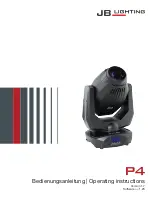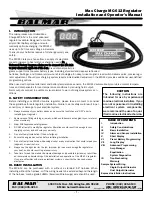
SERVICE
SERVICE
Rotary Hoe RH15 / RH18
Page 51
Support the Machine Properly
Always lower the attachment or implement to
the ground before you work on the machine.
If the work requires that the machine or
attachment be lifted, provide secure support
for them. If left in a raised position,
hydraulically supported devices can settle or
leak down.
Do not support the machine on cinder blocks,
hollow tiles, or props that may crumble under
continuous load. Do not work under a
machine that is supported solely by a jack.
Follow the recommended procedures in this
Manual.
When implements or attachments are used
with a machine, always follow safety
precautions listed in the implement or
attachment’s Operator's Manual.
Avoid High-Pressure Fluids
Inspect hydraulic hoses periodically – at
least once per year – for leakage, kinking,
cuts, cracks, abrasion, blisters, corrosion,
exposed wire braids, or any other signs of
wear or damage.
Replace worn or damaged hose assemblies
immediately with Fast Ag Solutions approved
replacement parts.
Escaping fluid under pressure can penetrate
the skin causing serious injury. Avoid the
hazard by relieving pressure before
disconnecting hydraulic or other lines.
Tighten all connections before applying
pressure.
Search for leaks with a piece of cardboard.
Protect hands and body from high-pressure
fluids.
If an accident occurs, see a doctor
immediately. Any fluid injected into the skin
must be surgically removed within a few
hours or gangrene may result. Doctors
unfamiliar with this type of injury should
reference a knowledgeable medical source.
Preventing Hydraulic System
Contamination
IMPORTANT: Cleanliness is very
important when working on a
hydraulic
system.
Prevent
contamination
by
assembling
cylinders, hoses, couplers, and valves
in a clean area of the shop.
Leave protective caps on fluid openings until
you are ready to make a connection. When
charging the system, use a tractor or other
source that contains clean oil free of abrasive
materials.
Keep couplers clean. Abrasive particles, like
sand or metal fragments, can damage seals,
barrels, and pistons causing internal
leakage.
A.
Piston
B.
Rod Guide or Gland










































